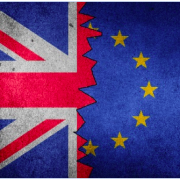Running a business can be challenging at the best of times, so make a note of these helpful tax incentives to ease a bit of pressure on cashflow.
Business owners up and down the country are constantly looking for ways to save money. Whether it is saving on operating costs, having more efficient business practices, or simply increasing profit margins.
Improving a company’s tax efficiency is often something that is on the to-do list of many company directors, but with so many day-to-day tasks in a workplace, it is fair to say sometimes it gets put off. That is why we are giving you a handy guide to help you understand what tax incentives are out there for your business.
If you are not aware of these seven tax breaks, you are essentially missing out on money that is rightfully yours. Below, we will go through all the different tax incentives and reliefs.
- Value Added Tax
Value added tax (VAT) is a tax that is imposed by the government on the sales of goods and services. Businesses with an annual turnover of more than the current VAT threshold – £85,000 – must register for VAT and complete a quarterly VAT return.
After signing up to VAT, you are legally required to charge an extra rate of cost on any goods or services you sell. These rates are:
- Standard rate – 20%
- Reduced rate – 5%
- Zero rate – 0%
The most common form of VAT is the standard rate, set at 20%. The benefit then comes from the fact your company can reclaim VAT when completing a tax return. VAT-registered companies can claim back output tax on goods or services bought through their company. They can also claim back input tax where they have been charged VAT by another company.
Any VAT claim can be backdated by up to four years, allowing companies to receive a lump sum in cash, helping cash flow.
It is also a misconception that small businesses below the £85,000 threshold cannot register for VAT. Any business below the threshold can voluntarily register for the tax.
- EIS & SEIS
The EIS (Enterprise Investment Scheme) is aimed at smaller, higher-risk businesses who raise finances by offering tax relief on any new shares. It is a very tax efficient way of investors investing into small companies.
People can invest up to £1,000,000 in any tax year and receive up to 30% tax relief, encouraging investment in small companies.
The SEIS (Seed Enterprise Investment Scheme) is even more generous, and aims to help companies at the very early stages of their lifecycle. Investors, including directors, can receive a tax relief of up to 50% on investments up to £100,000.
Clearly, these two schemes can be vital for small business who are thinking about securing investment.
- Enhanced Capital Allowance (ECA)
This tax relief is designed to allow businesses to be more efficient in relation to energy waste, and in turn, help the company become greener. The ECA focusses on improved technology, allowing companies to buy products on the Energy Technology List (ETL) for free, by deducting costs against any taxable profits.
These products include air to air energy recovery, heating, ventilation and air conditioning (HVAC) equipment, solar thermal systems and waste heat to electricity conversion equipment.
The equipment must be bought, not leased, and the relief does not apply to buildings or land.
You can see the full Energy Technology List here.
- Travel Expenses
Company owners and employees are both eligible to claim tax back on costs relating to business travel. The travel has to be related to outside of a normal working commute.
You can claim tax relief for money you have spent on things like:
- public transport costs
- hotel accommodation if you have to stay overnight
- food and drink
- congestion charges and tolls
- parking fees
- business phone calls and printing costs
HMRC state that the deductions can only be claimed on an expense that is deemed necessary to the travel, and may ask you to prove the travel in the form of receipts etc.
It is a small yet handy way to save some money, particularly if your business involves extended travelling.
- Uniform Tax relief
Many company owners do not realise that they can claim tax deductions when investing in uniforms for the business. Company owners must keep a record of uniform purchases, and the uniform must have a permanent logo of the company on the clothes.
Employees can also claim a tax rebate for the cost of maintaining and replacing their uniform.
Business owners can find out how much they might be owed by using this online calculate – here.
- Christmas party relief
The annual staff party can often be relatively expensive for business owners, but it is something which can bring staff together and increase morale. It may come as a surprise to many owners that any limited company can claim back tax relief on the cost of hosting office parties, making the celebration more affordable.
If your party follows the below criteria then you could be entitled to a tax-free subsidy for food, drink, travel or accommodation:
- The total cost doesn’t exceed £150 per head inclusive of VAT
- The event is primarily for entertaining staff, and
- All employees are invited
This is often a nice surprise for many business owners, as it softens the blow at the end of the year.
- Research & Development tax credits (R&D tax credits)
R&D tax credits, or research and development tax credits, were created in 2000 by the UK government to help small and medium enterprises (SMEs) invest in innovation. Any company developing new technology can legally apply for R&D tax credits, with the credits working as a tax relief – reducing a company’s tax bill by a certain percentage of qualifying R&D expenditure, or by a payment in cash.
Since the tax relief was introduced in 2000, an incredible £21.4bn has been claimed by UK businesses. On average, an SME’s claim is equal to almost £54,000.
The research and development being completed by the company has to be focussed on advancing industry level knowledge. If the research could be carried out by a reasonably competent professional in that particular field, you may have trouble convincing HMRC of the validity of the claim.
Many SME owners simply think it is too good to be true, and there must be a catch. This is leading to many company owners missing out on this legitimate financial reward for their valuable investment within their industry.
How RDTaxCredit.org.uk can we help
At rdtaxcredit.org.uk, we understand that beginning to think about claiming R&D Tax Credits may be a little daunting. We want to help you through the process, to ensure you receive the financial reward that the Government wants to give you. Especially in this current climate where every penny counts.
Our expert team of accountants are committed to working with you and your company to provide strategic R&D tax credit advice. We can review your claim and propose new techniques to ensure you claim the maximum amount you are entitled to.
We offer a friendly and professional approach to R&D Tax Credits which includes:
- A free no obligation initial review.
- 100% success rate
- 30 day quick turnaround
If you would like to contact one of our experts for free initial advice, complete the quick enquiry form to receive a no-obligation review of your R&D Tax Relief claim.











Leave a Reply
Want to join the discussion?Feel free to contribute!